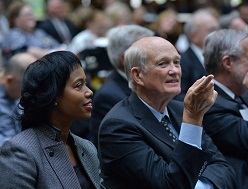Employers Must be Aware of the Litigious Potential of Discriminatory Nicknames
Employers Must be Aware of the Litigious Potential of Discriminatory Nicknames

A sales rep has been awarded more than £63,000 compensation in a case which highlights the litigious potential of disrespectful and hurtful workplace name-calling.
Alan Dove’s payout for unfair sacking comes as the Equality and Human Rights Commission says it has received more than a hundred complaints about discriminatory adverts for jobs and services.
In upholding Mr Dove’s age discrimination claim, the employment tribunal decided that his dismissal was influenced by customers’ stereotypical views. In essence, the employer adopted the customers’ discriminatory and stereotypical attitudes without further enquiry.
Dismissal of salesperson was tainted by age discrimination
The employment tribunal decision in Dove v Brown & Newirth Ltd shows that, not only can nicknames related to a protected characteristic be harassment, but they can also be part of the evidence in other types of discrimination claim.
The tribunal ruled: “We accept that this was not meant to be offensive, but that does not mean that it was not discriminatory . . . Such a comment made once or twice might not cause offence but, if used more often, could lead, with justification, to a real detriment. The fact that it was banter does not really assist the respondent.”
Tribunals reject defence of workplace “banter”
Dove v Brown & Newirth Ltd is the latest high-profile example of an ill-advised workplace nickname resulting in a successful discrimination claim.
Employers must remember that tribunals have consistently rejected the notion that a harassment claim can be defended on the basis that the remarks were “only banter”.
One person’s humorous comment can seem like an offensive and degrading put-down to another person. The intention does not matter.
In Ruda v Tei Ltd, a tribunal upheld a Polish welder’s race discrimination claim over the nickname “Borat”, on the basis that the name evoked stereotypes about eastern Europeans. Giving a worker a nickname based on his or her country of origin, or stereotypes from that part of the world, risks a finding of harassment and direct discrimination.
In Davies v Remploy, a wheelchair user brought a workplace disability harassment claim on the basis that a manager nicknamed him “Ironside” – a reference to a once-popular TV series which featured a wheelchair-using detective. The tribunal held that the manager’s conduct had the effect of violating the claimant’s dignity, and upheld the disability harassment claim.
EHRC highlight scores of discriminatory complaints
The Equality and Human Rights Commission (EHRC) recently said it has received more than a hundred complaints about discriminatory adverts for jobs and services.
Ads specifying a need for “young” or “female” workers were among those that were not in line with equality legislation.
As well as highlighting examples of the types of adverts to breach equality legislation, the EHRC has published a series of short guides and checklists for those who place and publish adverts.
EHRC chief executive Rebecca Hilsenrath said: “The high volume of complaints we receive each year shows employers and service providers have sometimes opened themselves to potentially costly legal action. This is usually as a result of confusion about what is and isn’t permitted by equality legislation.”
At IBB Solicitors, we take a proactive approach to workplace problems, helping employers find the best possible outcome for their employment issues. We can help advise on policy reviews and provide expert training for your HR team. Our specialist employment lawyers place heavy emphasis on continuing personal training and development, to ensure that they always present you with the most up-to-date legal and practical advice available.
Find out how we can help you settle employment disputes and stay on the right side of the UK’s ever-changing employment law by calling us on 01895 207892, or email your details to employment@ibblaw.co.uk.
